Tax policy issues impacting commercial real estate were front and center during This Roundtable’s Jan. 23 State of the Industry (SOI) meeting as policy discussions with congressional tax writers, issue experts, and Roundtable members ranged from specific measures in a recently approved tax package by the House Ways and Means Committee to a landmark Supreme Court case.
Tax: What Lies Ahead
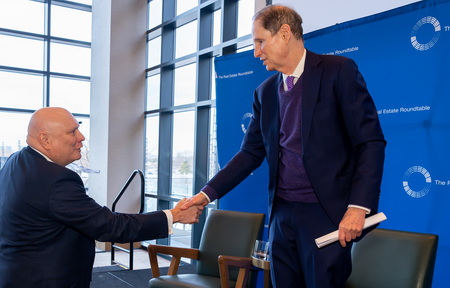
- Senate Finance Committee Chairman Ron Wyden (D-OR), right with The Roundtable’s Jeffrey DeBoer, discussed the recent tax package passed by the House Ways and Means Committee and its uncertain path in the Senate. In addition to an expansion of the low-income housing tax credit, the $77 billion bill includes a retroactive, four-year extension (2022–2025) of the taxpayer-favorable EBITDA standard for measuring the amount of business interest deductible under section 163(j). It also contains an extension of 100% bonus depreciation through the end of 2025. (Roundtable Weekly, Jan. 19)
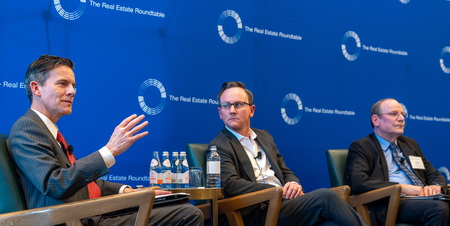
- “What’s in Front of Congressional Tax Writers: 2024 and Beyond” was explored by (left to right) Roundtable Senior Vice President and Counsel Ryan McCormick; Mark Roman, (Staff Director, Republican Majority House Ways and Means Committee); and Joshua Sheinkman (Staff Director, Democrat Majority Senate Finance Committee). The congressional tax experts discussed measures in the recent tax package and noted the scheduled expiration of Tax Cuts and Jobs Act (TCJA) incentives at the end of 2025—and what proposals may emerge to extend them.
- McCormick also offered a Tax Policy Issues presentation based on and The Roundtable’s 2024 Tax Policy Priorities.
Supreme Court Challenge
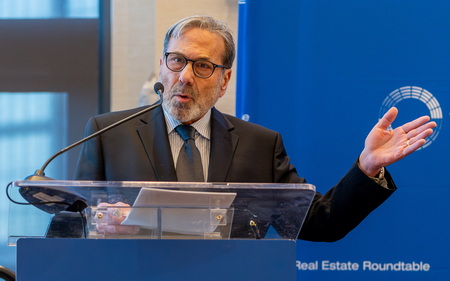
- Roundtable Tax Policy Advisory Committee (TPAC) member Don Susswein (Principal, RSM US LLP) presented an overview of an important Supreme Court case (Moore v. United States) that challenges the federal government’s constitutional authority to tax unrealized income. (Roundtable Weekly, Dec. 8)
TPAC holds monthly Zoom calls on timely, compelling tax policy issues affecting CRE. If you are interested in joining, contact The Roundtable’s Ryan McCormick.
# # #
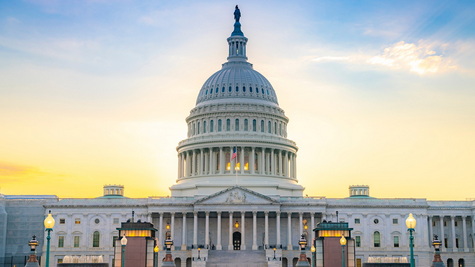


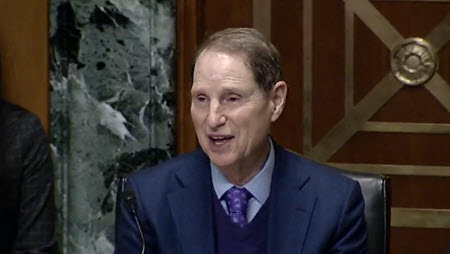

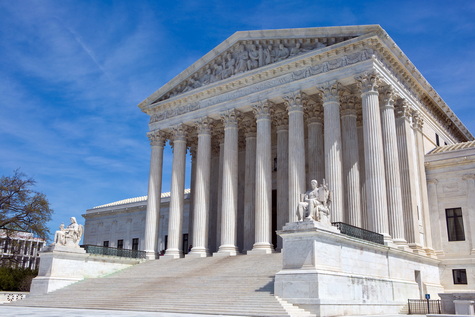

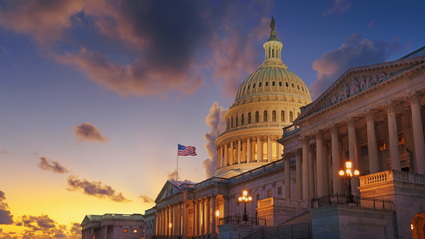


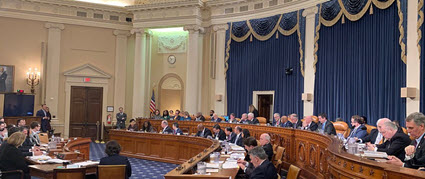


 Legislation introduced this week by Senate Finance Chairman Ron Wyden, above, would repeal tax rules applicable to foreign governments and their investment arms (“sovereign wealth funds”) if that government has more than $100 billion invested globally and does not qualify for an exception. (Wyden’s
Legislation introduced this week by Senate Finance Chairman Ron Wyden, above, would repeal tax rules applicable to foreign governments and their investment arms (“sovereign wealth funds”) if that government has more than $100 billion invested globally and does not qualify for an exception. (Wyden’s 